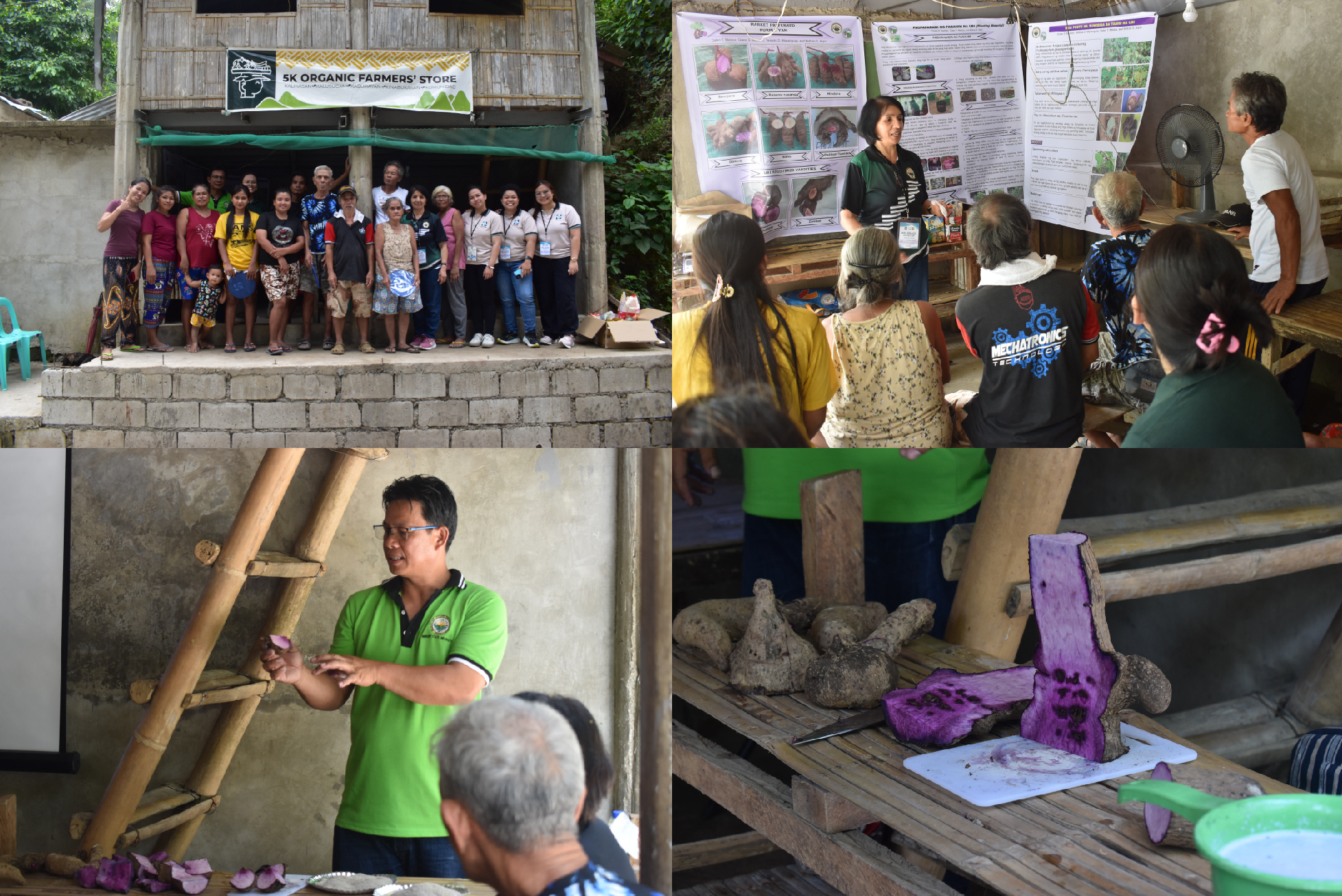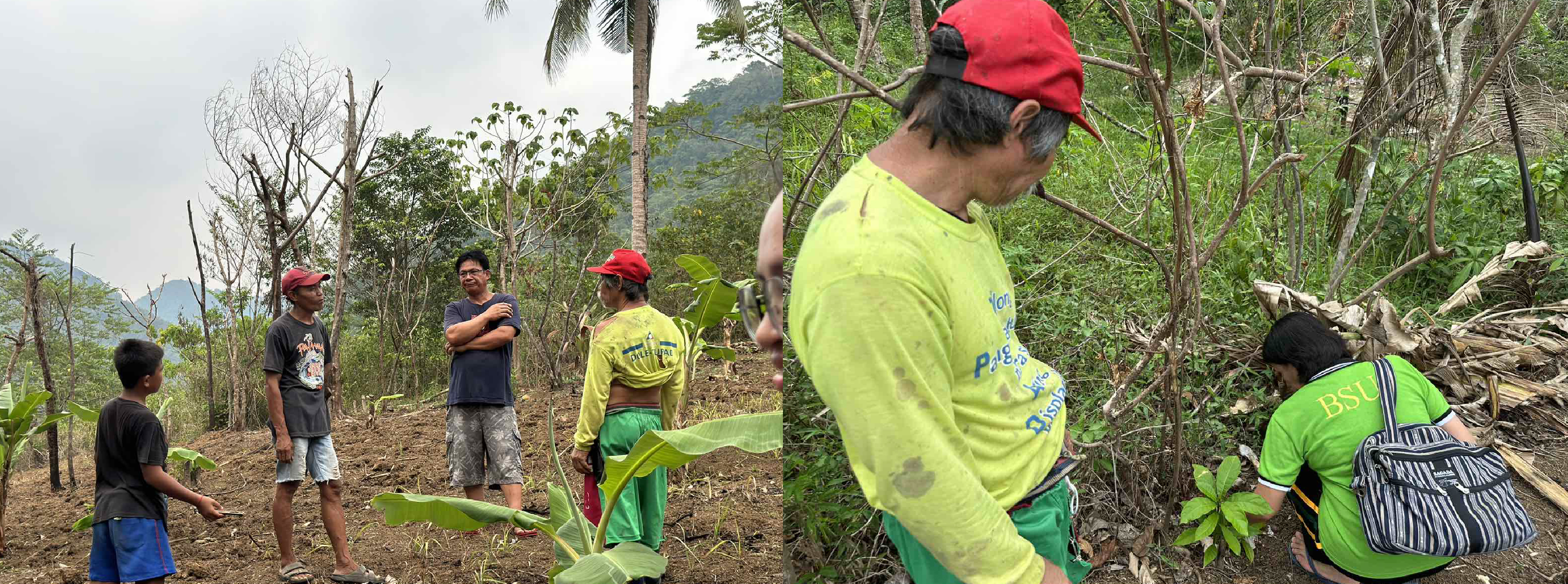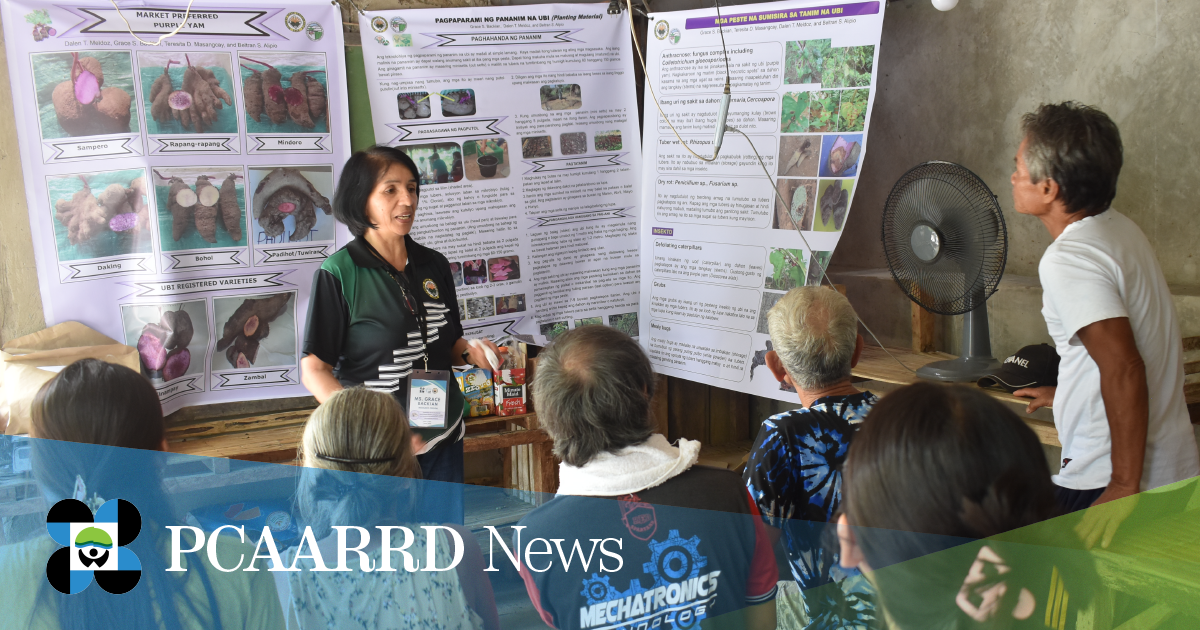A training was conducted in response to the consistent demand for ubi as observed in the Agri-Aqua Business Hub (AABH) market database of the Philippine Council for Agriculture, Aquatic and Natural Resources Research and Development of the Department of Science and Technology (DOST-PCAARRD).
Ubi (Dioscorea alata L) is a highly demanded crop in the Philippines, known for its vibrant purple flesh and versatile culinary application. This tuber is rich in essential nutrients such as vitamins, minerals, and antioxidants. It can be used as an ingredient in various food products, including pan de sal, hopia, jam, and ice cream, among others.
The training, “Optimizing Ubi Production for Institutional Market Linkaging: Insights into Standard and Sustainable Cultural Management,” was conducted by DOST-PCAARRD AABH in collaboration with experts from Benguet State University (BSU)-Northern Philippine Root Crops Research and Training Center (NPRCRTC).

Training on standard and sustainable cultural management practices of ubi for the 5K Agricultural Cooperative. (Image credit: SERD, DOST-PCAARRD)
Held on June 4, 2024 at Brgy. Daraitan in Tanay, Rizal, the training aimed to increase the cooperative members’ technical knowledge and skills in ubi production. Capacity building is part of the hub’s enterprise development mandate.
A total of 12 representatives from 5K Agricultural Cooperative, Sierreza CEO and Founder Cherrys Abrigo, including its staff member Kesha Vergara, attended the training. The 5K Agricultural Cooperative comprises Rizal’s indigenous communities that has the potential to supply ubi. The cooperative is supported by Sierreza, a Los Baños-based Community-Supported Agriculture (CSA) that promotes sustainable livelihoods and ensures fair market access for smallholder farmers. While some participants have not yet grown ubi, they have expressed interest in planting the root crop.
The topics covered include different varieties of ubi, climatic and soil requirements, site selection, cultivation practices, minisett technology, insect pest and disease management, harvesting and postharvest handling, and research and innovation.
Ms. Grace S. Backian, NPRCRTC's Training and Extension Division Coordinator and Mr. Beltran S. Alipio, focal person for ubi production, shared their expertise on scientific and recommended practices in growing ubi. Training materials were distributed to the participants who showed interest in organic farm practices, aligning with Sierreza's commitment to fresh organic produce.

On-site assessment of ubi farms on June 3, 2024. (Image credit: SERD, DOST-PCAARRD)
Ms. Backian explained the optimal conditions for ubi growth, highlighting an average annual rainfall of 115 cm, temperature of 30°C, and slightly alkaline and fertile soil with high organic matter content. Discussions also covered pest control. Mr. Alipio also demonstrated minisett technology, which involves the selection of healthy tubers, cutting the mother tubers into 25–100-gram (g) minisetts that must possess a reasonable amount of peel (periderm) from which sprouting can occur. He also discussed the importance of shaded facilities, necessary equipment and materials, cutting techniques, and wound curing and air drying.
Ms. Cherrys Abrigo, the CEO and Founder of Sierreza expressed her gratitude to AABH and the experts from BSU, emphasizing the training's importance to the newly-formed 5K Agricultural Cooperative. The new knowledge gained by the cooperative members will guide them in the production of ubi and more importantly, in meeting the existing demand. Through this activity, the Dumagat farmers of the 5K Agricultural Cooperative will be able to tap bigger ubi markets while ensuring a fair price for their hard labor.

